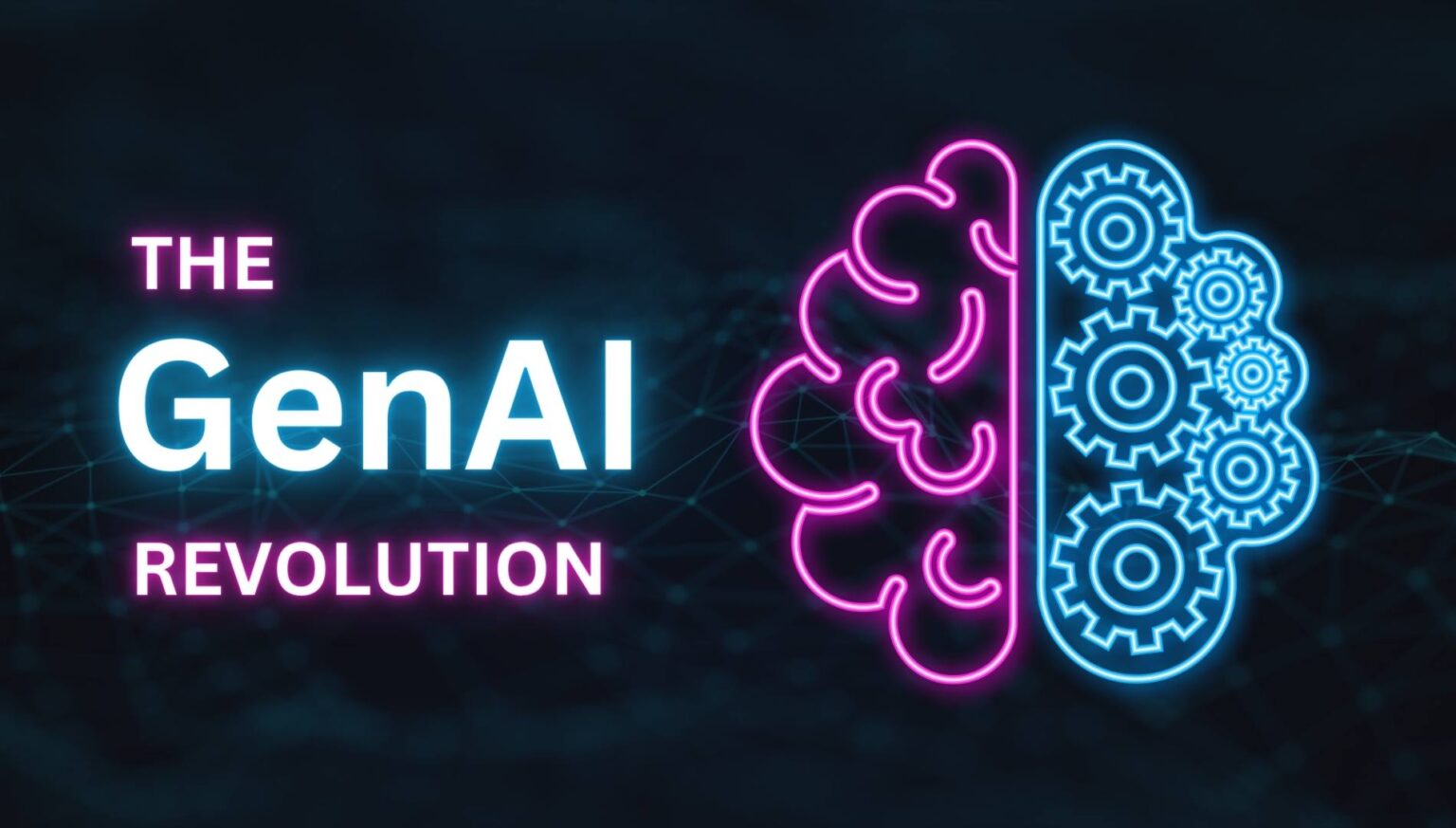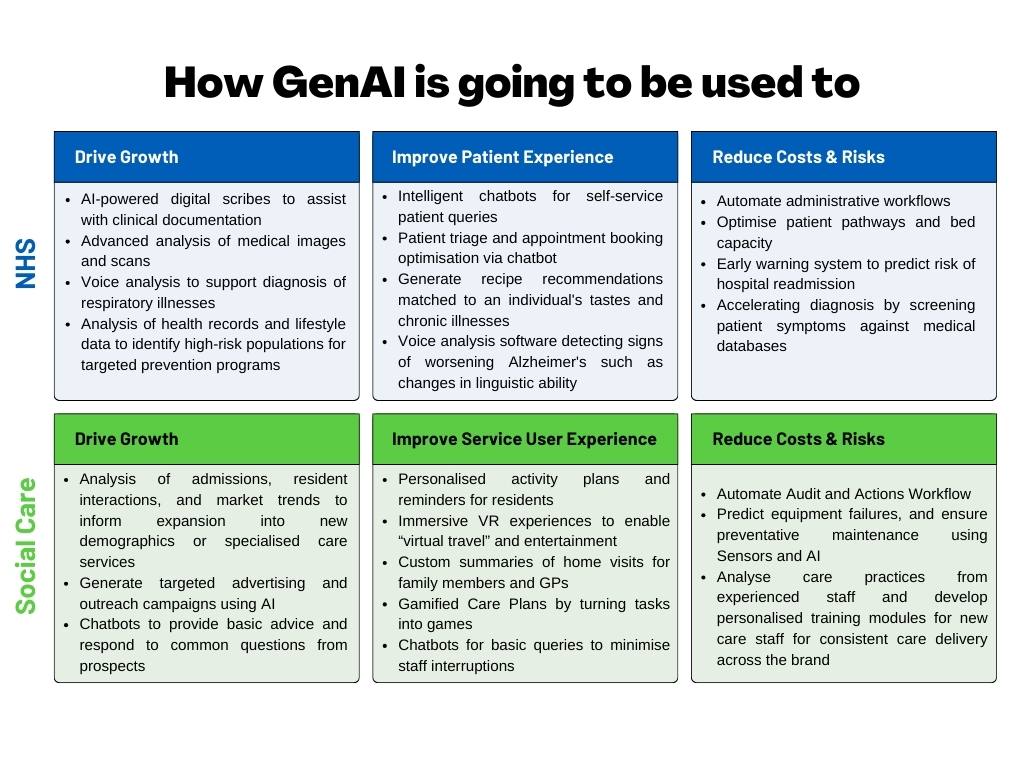@2021 invictIQ is a venture by Sprint Consultancy. All rights reserved. Privacy Policy.


Beyond Tomorrow: A Glimpse of GenAI in Care Services
by Sangha Chakravarty
GenAI has moved past its early stages and become a significant presence in the world of artificial intelligence. Since 2022, it has gained strong momentum, thanks to tools like ChatGPT and DALL-E 2.
By 2023, GenAI established itself as more than just a temporary trend. OpenAI’s ChatGPT, with its widespread user adoption, showcases GenAI as a powerful and lasting influence in the field of AI.
What is GenAI:
Generative Artificial Intelligence (GenAI) refers to algorithms, such as ChatGPT, that can be used to creating new content, including audio, code, images, text, simulations, and videos. Recent innovations in this field promise revolutionary shifts in content creation approaches. Utilising deep-learning algorithms, GenAI analyses unstructured data sets, a significant breakthrough for health and social care operations rich in clinical and care notes, diagnostic images, and medical charts. The fusion of unstructured and structured data sets unlocks vast potential for innovation in health and social care sector.
How GenAI differs from other kinds of AI:
Mrs. Miggins, safely tucked in bed, sleeping soundly, her smart bedding system keeping watch. A subtle change in her breathing, a twitch in her sleep – the mattress detects it all, silently sending an alert to her carer.
While traditional AI might be content with basic monitoring, GenAI takes a leap into the world of understanding Mrs. Miggins’ sleep dynamics in a profoundly nuanced way. As she peacefully dozes, the GenAI system detects the subtle shifts in her breathing and even the slightest twitches during her slumber. This is where the magic unfolds. Unlike conventional AI, which often operates within rigid frameworks and predefined tasks, GenAI possesses the remarkable ability to comprehend unstructured data. In Mrs. Miggins’ case, it interprets the intricacies of her sleep patterns, leveraging this understanding to make real-time predictions and send tailored alerts to her caregiver.
Essentially, GenAI acts as a personalised companion, dynamically adapting to unpredictable scenarios and learning from the unique patterns of Mrs. Miggins’ sleep. This stark contrast showcases how GenAI transcends the limitations of traditional AI, offering a new dimension of responsiveness and personalised care in the ever-evolving landscape of artificial intelligence.
Where is GenAI headed:
GenAI offers significant benefits for businesses. Its Large Language Models (LLM) have the ability to absorb large amounts of data, engage in natural language interactions, and produce varied outputs such as text, images, and code. According to a McKinsey report, Generative AI has the potential to contribute an annual addition of $2.6 trillion to $4.4 trillion to the global economy, highlighting its immense capabilities. As disruptive applications of Generative AI become more widespread, its importance becomes evident across various industries. There’s a growing demand in enterprises for AI and accelerated computing, making them integral components of innovation roadmaps and competitive strategies.
How GenAI is going to be used in Health and Social Care:
Various forms of disorganised information in the care sector now serve as valuable resources to fuel generative AI. It’s essential for all care providers to view exploring generative AI as a necessity, not just a possibility. GenAI has the potential to add value in numerous scenarios. The costs and technical prerequisites to begin are not overly restrictive, but choosing not to act could result in swiftly lagging behind global standards. The challenge lies in distinguishing between the excitement that often surrounds any new technology and the genuine and lasting benefits it may offer.
Here are some ideas how Care providers can leverage GenAI to scale operations, ranging from better care delivery to documentation management:


MORE ARTICLES


Share
Sign up for our newsletter

